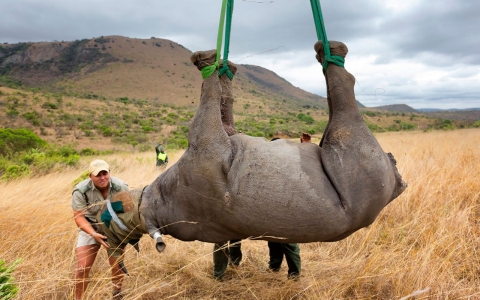
The nonprofit is launching feasibility studies to decide where the animals could go and still have adequate levels of food and water, among other factors. Future destinationsĪfrican Parks says it aims to have all the animals in their new homes within the decade, but exactly where the animals will be going in the wild, when, and how the group will be broken up have not yet been determined. The farm’s last known poaching incident occurred in March 2017, and African Parks says that it considers the security to be state-of-the-art. But the approach appears to be effective. In documents from the auction, Hume noted that he spends more than $425,000 per month protecting the animals from poachers. The nonprofit also confirmed to National Geographic that it will continue the farm’s current security operations to prevent poaching, including helicopter patrols, dozens of armed game rangers with guard dogs, and more. Unauthorized use is prohibited.Īfrican Parks manages 22 national parks and protected areas across 12 countries in Africa, and it says it will be keeping all of Platinum’s staff employed to care for the animals until they can be relocated to the wild. Taylor Tench, a senior policy analyst who specializes in rhinos at the Environmental Investigation Agency, a watchdog group with offices in the United States and United Kingdom, called this deal one of the “most positive outcomes that could have arisen from this situation.” He cautioned, however, that the challenges of rewilding the animals are “incredibly daunting.” Instead, under a private deal between Platinum and African Parks, the nonprofit acquired the farm, its thousands of rhinos, and numerous other animals including giraffes, hippos, sheep, and more. ( Watch our TikTok about the rhino farm.) He received no bids for the farm, which is called the Platinum Rhino Conservation Project. Hume, an entrepreneur who for years lobbied to sell the animal’s horns, had put his entire 21,000-acre farm in South Africa and all its animals up for auction in April with an initial asking price of $10 million. Increased enforcement and policy action is urgently needed to prevent remaining African rhino populations moving further towards extinction.About 2,000 white rhinos living on the world’s largest rhino farm will be released into the wild as part of a new deal struck between farm owner John Hume and the conservation nonprofit African Parks. longipes was confirmed extinct in November 2011.

There are approximately 5,000 Black Rhinos still in Africa, classified as Critically Endangered by IUCN, with three surviving subspecies: Eastern Black Diceros b.

Tragically, the last remaining wild population of the northern subspecies cottoni will soon become extinct as only two female captive individuals remain.


The most pressing threat to their continued survival in the wild is from poaching to satisfy consumer demand for their horn, predominantly from Asia.Ĭurrently, there are approximately 20,000 White Rhinos Ceratotherium simum on the continent, classified by IUCN as Near Threatened. The conservation of African rhinos has been a major wildlife trade issue for well over a decade. African Black and White Rhino conservation


 0 kommentar(er)
0 kommentar(er)
